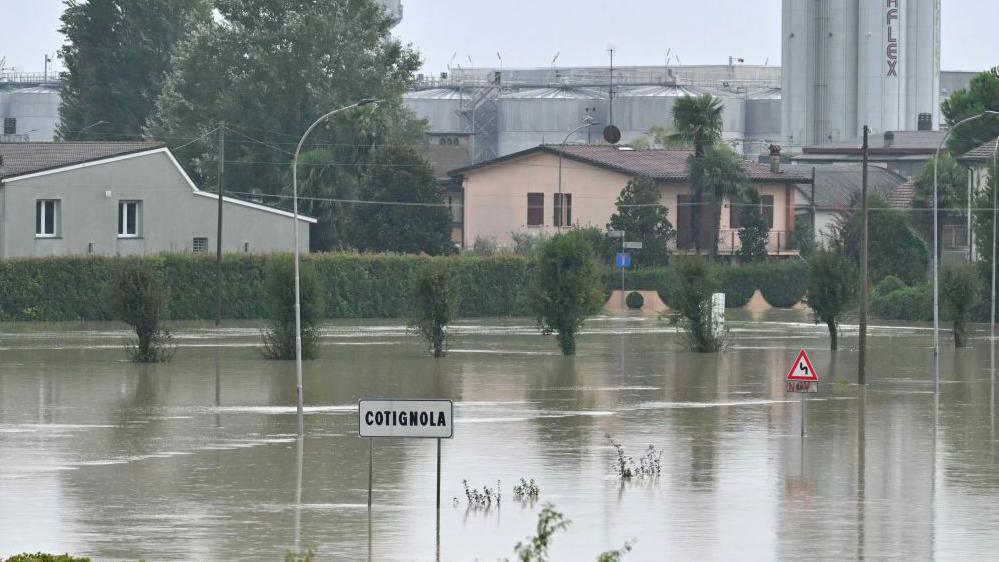Storm Boris: red warnings for floods in Italy

- Published
After causing historic floods in central Europe, Storm Boris continues to bring devastating weather.
With heavy rain now across northern areas of Italy, there is a continued risk of flooding.
Red warnings for flooding and landslides have been issued for eastern Emilia- Romagna.
Heavy rain is expected to last until early Friday before it turns drier into the weekend.
Floods are already reported in the central city of Pescara, but some of the highest rainfall has been further north in Italy.
Falconara on the Adriatic coast has seen 204mm (8 inches) of rain since Wednesday, well over September's average of around 67mm.
Over 300mm of rain was recorded over the Apennine mountain region.
More rain is expected today, perhaps another 50-100mm locally in the Emilia-Romagna region.
Red warnings for flooding and landslides remain in force as authorities deal with the ongoing emergency.
The rain will ease through Friday, and the weekend is looking largely dry but as seen in other parts of central Europe, the flooding risk may continue.
Despite the weather improving somewhat in the Czech Republic, there are still red warnings for flooding in much of the country until Friday.
Heavy rainfall triggers floods in Europe
Boris leaves trail of devastation
Right across central Europe, Storm Boris brought heavy rain, snow, floods and landslides.
In some of the worst hit areas of the Czech Republic, Romania and Austria floods have devastated local communities, leaving at least 24 people dead.
There is a month-long state of natural disaster in Poland as the clear up begins from the widespread flooding.
Record rain fell with the town of Jesenik in the Czech Republic getting around half a metre of rain in the space of four days - five times September's average.
Boris was caused by an area of low pressure driven by cold Arctic air clashing with warm air from the south, fuelled by record sea-surface temperatures in the Mediterranean.
The atmospheric pressure pattern also meant that Storm Boris was stuck in one place for a long time.
Climate change has played a part in the impacts brought by Boris too.
Scientists say that a warmer atmosphere holds more moisture, leading to more intense rainfall. Warmer oceans also lead to more evaporation, feeding storm systems.
For every 1C rise in the global average temperature, the atmosphere is able to hold about 7% more moisture.
- Published17 September